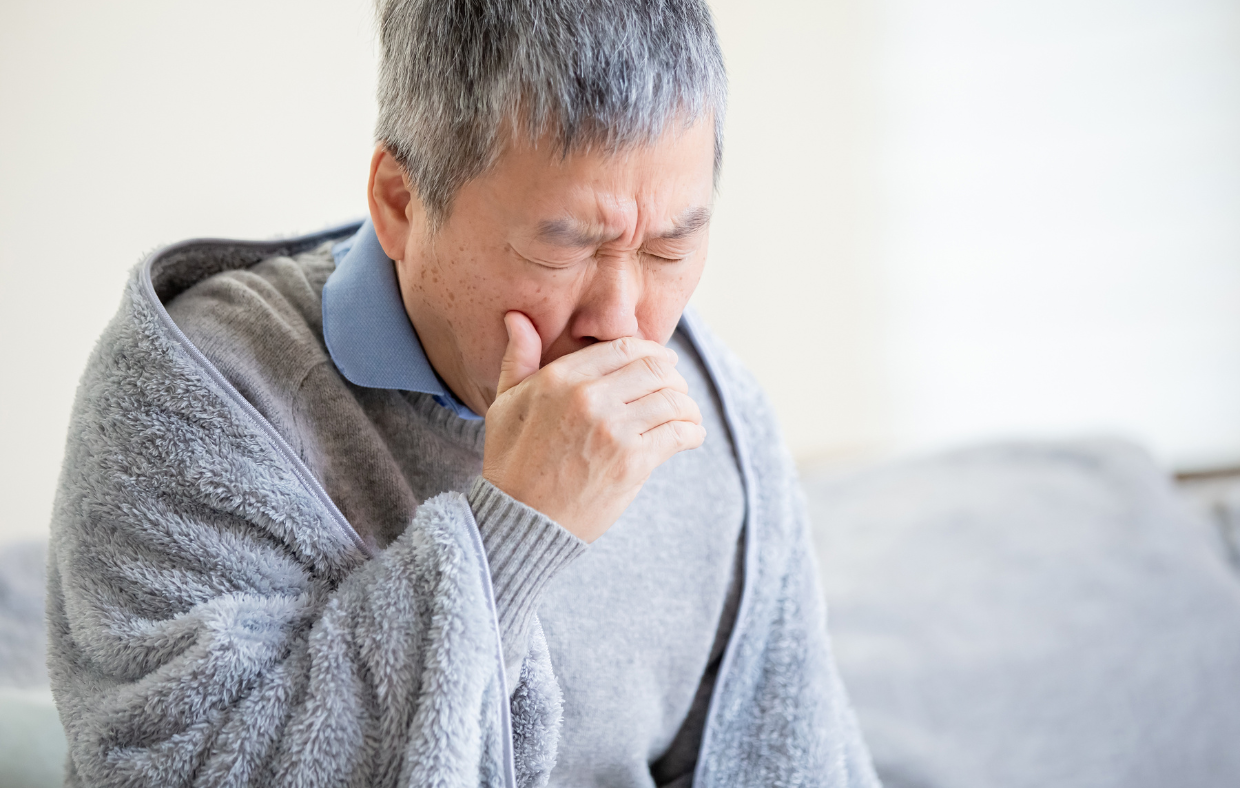As people gather indoors during the winter, contagious respiratory viruses transmitted through droplets in coughs and sneezes tend to circulate with abandon. This season has been especially brutal as the flu, respiratory syncytial virus (RSV), and COVID spread simultaneously, straining healthcare providers across the country. All three illnesses cause similar symptoms that can also be mistaken for a common cold. If you feel sick, see your healthcare provider right away. They can figure out which virus is making you ill and start timely treatments that put you on the path to recovery.
RSV: An old virus on the rise
RSV is a common respiratory virus that most of us are exposed to by the time we’re five years old. We’re hearing a lot about it now because the past few years of COVID isolation weakened our immune systems, making us more susceptible to viruses like RSV, which are spiking as people emerge from isolation and let their guard down. The symptoms are similar to a cold, usually some combination of a runny nose, cough, and fever, though fever is more common with RSV. Wheezing or difficulty breathing is another symptom we sometimes see with RSV, but not colds.
Unfortunately, there’s almost no vaccine or treatment that directly targets RSV, so we can only treat the symptoms. (While there is an intervention called Synagis for premature babies born before 35 weeks, it is not approved for use in the general population with healthy immune systems.) This lack of treatment options makes RSV especially dangerous for high-risk groups like infants and the elderly, who should stay away from people who might have RSV (or any respiratory virus, for that matter). The good news is that the vast majority of cases are mild and can be treated with over-the-counter medications like Tylenol or ibuprofen, hydrating frequently, and using warm, humid air to loosen nasal congestion.
Taming the flu with early treatment
Compared to RSV, influenza — commonly called the flu — is a much more dangerous respiratory virus responsible for up to 50,000 deaths and 200,000 hospitalizations per year prior to the COVID-19 pandemic. In addition to the cold-like symptoms seen with RSV, the flu can cause body aches, chills, and gastrointestinal symptoms like nausea and diarrhea. Young children, the elderly, and people with compromised immune systems are most at risk, as are those with pre-existing conditions like asthma, COPD, and lung disease since influenza can lead to life-threatening pneumonia.
Healthcare providers can diagnose the flu with a rapid test and there are plenty of treatments available, starting with annual vaccines, which are free, safe, and effective. Everyone should get vaccinated against the flu, especially members of at-risk groups.
For those who do get sick, antiviral prescription medications like Tamiflu and Xofluza are effective at decreasing the severity and duration of illness, but only if they’re taken within 48 hours of symptoms starting. If you think you have the flu, it’s important to see your doctor and get tested right away.
COVID masquerades as many illnesses
When it comes to diagnosing your illness, COVID-19 is the great imposter. This novel coronavirus can appear much like a cold, RSV, or the flu — or like something entirely different. I’ve seen people whose only symptom was diarrhea. Even the loss of smell or taste, which is most closely associated with COVID, can occur with other respiratory viruses. The only way to know if you have COVID is to take a test.
Thankfully, rapid tests that can be used at home are widely available and fairly accurate. Healthcare providers offer even better tests. And much like the way we treat the flu, antiviral medications such as Paxlovid can reduce the severity of COVID when taken within 48 hours of symptom onset. Vaccines and booster shots are now plentiful and have been proven safe and effective at preventing serious illness and death. While COVID isn’t going away anytime soon, we’re starting to build up our arsenal of weapons to defend against it.
Just remember that you can take common-sense measures to protect yourself against all three of these respiratory viruses as well as the common cold. Make sure your vaccines and booster shots are up to date. Wear masks, wash your hands, and do your best to stay away from people who are sick. Do everything you can to bolster your immune health by eating well, exercising regularly, staying hydrated, getting enough sleep, drinking less alcohol, and reducing stress.
Last but not least, use your intuition. If you feel like something’s off, like you might be getting sick, that’s your animal instinct kicking in, so listen up! Instead of wasting time, go see your doctor so you can get tested and treated. Most of the time we’ll send you home with some medicine to rest and recover, but it’s always better to be safe than sorry.
Justin Ebert, PA-C, is the medical director at MCHC Health Centers—a local, non-profit, federally qualified health center offering medical, dental, and behavioral health care to people in Lake and Mendocino Counties.

 MyChart Login
MyChart Login

